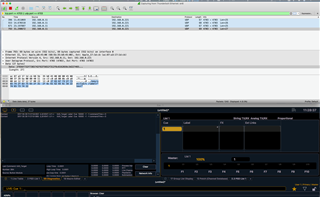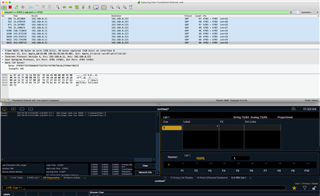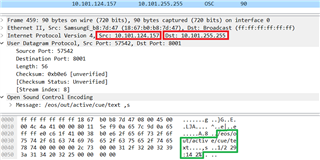So about a year ago I started working on adding integration between my FileMaker paperwork system and EOS. I ended up using simple UDP strings do to most everything, as I was having problems getting OSC to play friendly.
I decided to look into OSC again tonight and I'm having weird problems that I can't solve despite hours of experimentation, reading, and searching the forums and show control guide.
Problem 1)
I can send /eos/key/xyz/ commands and they post to the command line properly. While they do post properly, I see in diagnostics "error, OSCKeyMethod missing key name" and my searches for this error and what it means have come up blank.
Problem 2)
I cannot send any kind of /set/ strings or /cmd/ strings. Here's a few examples and what they show up as in diagnostics:
| String | Behavior | Diagnostics |
/eos/set/cue/1/1/label="TextHere" |
Clears existing label | String appears with everything but TextHere |
/eos/set/patch/1/label="TextHere" |
Nothing | Event does not appear |
/eos/cmd="1 at 75 #" |
Nothing | Event does not appear |
/eos/cmd/1/at/75/ |
Nothing | Event does not appear |
Same results for /newcmd/. I'm experiencing these issues using both my TCP/UDP sender plugin for FileMaker (MBS), as well as with PacketSender.
What could be causing some to work but not others?
This all came about tonight because I'm looking for a way to send address data to patch. I can send everything else over no problem but I couldn't figure out how to get address data over and that led me down this rabbit hole. Currently to patch something the only way I can get it to work is to do:
/eos/key/open_dmx_patch/
/eos/key/1/
/eos/key/at/
/eos/key/1/
/eos/key/#/
But there has to be a better way... /eos/key/open_dmx_patch/ and then /eos/cmd/1/at/1/#/ should work, no? Is there an old fashioned UDP string that can send address data over? I tried <U1>Edit_Target address Patch 1 -1 -1 1 with no luck.




